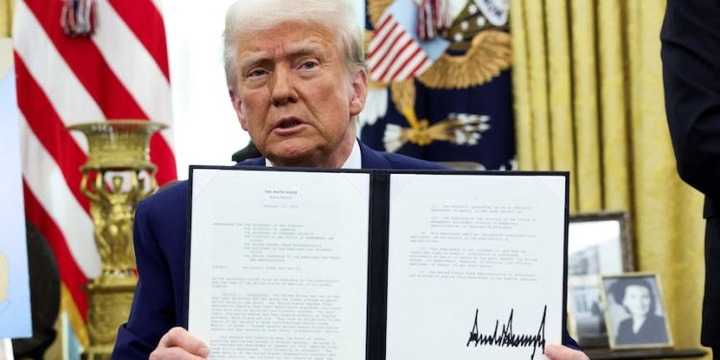Ghana has been hit with a 15% ad valorem tariff on its exports to the United States under a new executive order issued by U.S. President Donald J. Trump on July 31.
The order forms part of broader U.S. efforts to address what it terms a national emergency caused by persistent trade deficits and imbalanced trade relations.
The tariff, which takes effect seven days from the date of the order, applies to goods from Ghana entering the U.S. and is part of sweeping new measures that impact dozens of countries.
Ghana joins a list of trading partners deemed by the U.S. administration to have not sufficiently aligned their trade policies or tariffs with U.S. interests.
According to the executive order, the new duties are designed to enforce reciprocal trade terms and protect America’s domestic manufacturing base and national security interests.
The U.S. government claims that current trade practices by several nations, including Ghana, contribute to long-standing U.S. trade deficits.
While the list of affected countries spans every continent, Ghana is one of several African countries — including Nigeria, Kenya, and South Africa — subject to similar tariff hikes.
The move marks a significant shift in trade dynamics between the two nations, with potential implications for Ghanaian exporters, particularly in agriculture, textiles, and processed foods.
The Ghana Export Promotion Authority (GEPA) and Ghana’s Trade Ministry are yet to comment on the implications of the new tariff.
The tariff decision comes despite ongoing diplomatic engagements and Ghana’s reputation as one of the U.S.’s most stable and cooperative partners in West Africa.
Trade experts note that unless Ghana and the U.S. enter into new bilateral negotiations to meet Washington’s expectations on “reciprocity” and alignment on national security, the tariff could remain in place for the foreseeable future.
As part of the order, any country listed that attempts to circumvent the tariff through third-party transshipments could face penalties as high as 40%.
The U.S. Trade Representative’s Office has been tasked with monitoring the impact and compliance of affected countries and will provide updates every six months.
The Ghanaian government is expected to issue a formal response in the coming days.
